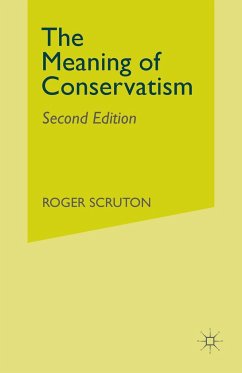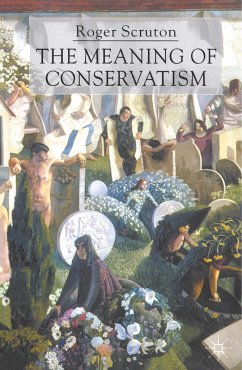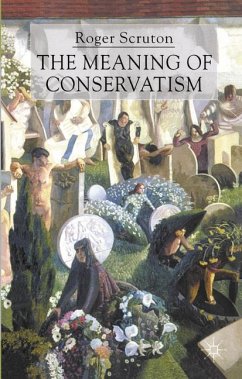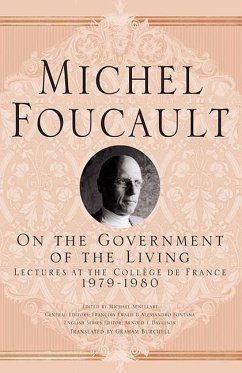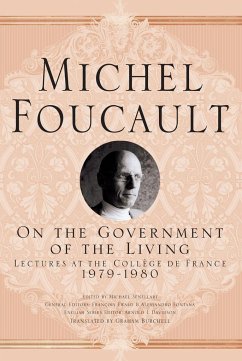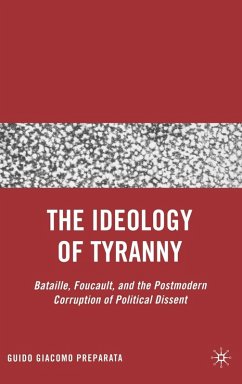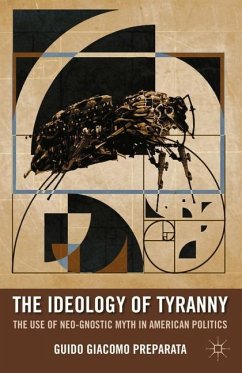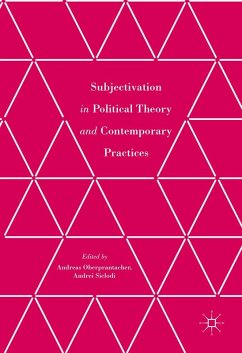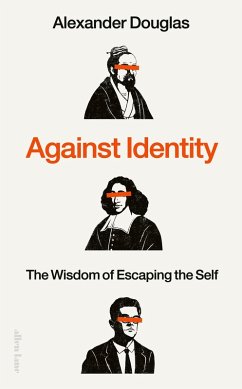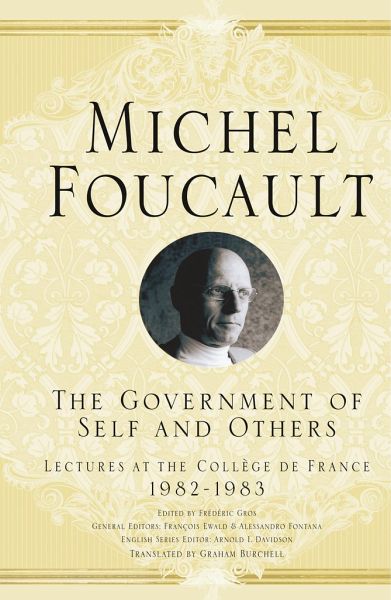
The Government of Self and Others
Lectures at the Collège de France 1982-1983
Versandkostenfrei!
Versandfertig in 6-10 Tagen
42,99 €
inkl. MwSt.
Weitere Ausgaben:

PAYBACK Punkte
21 °P sammeln!
An exciting and highly original examination of the practices of truth-telling and speaking out freely (parr?sia) in ancient Greek tragedy and philosophy. Foucault discusses the difficult and changing practices of truth-telling in ancient democracies and tyrannies and offers a new perspective on the specific relationship of philosophy to politics.






